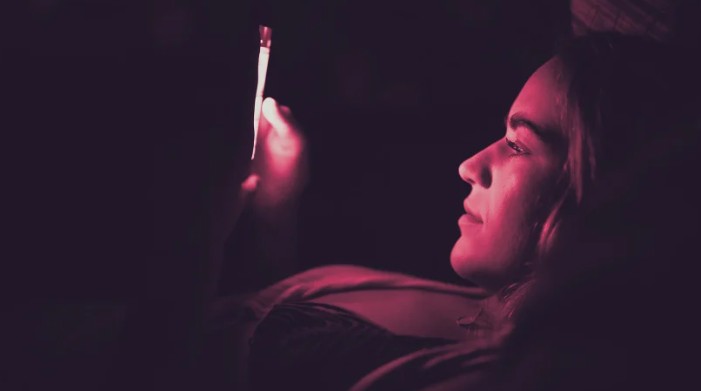 |
|
(O2O Creative/Getty Images)
|
Full Story: Inc. (tiered subscription model) (4/7)
This Everyday Activity Raises Your Risk of Insomnia by 59 Percent, Massive New Study Warns
A huge new study shows this activity raises your risk of insomnia by more than half. You probably do it every day.

Photo: Getty Images
That means business leaders tend to face a higher risk of insomnia, both because starting a company is stressful and because busy-minded, restless people may be more likely to start companies.
But according to a massive new study of 45,000 young adults, many entrepreneurs are engaging in a practice that makes getting a good night’s sleep even less likely. It’s something you probably do every day, and the data shows it’s raising your risk of insomnia by 59 percent.
A reminder of all the reasons sleep deprivation is terrible
Before getting to the study, let’s pause for a moment and remind you why sleep is worth caring about. Being exhausted all day feels terrible, of course. But a towering pile of studies shows it makes you dumber, less creative, and a worse leader too.
Which should make entrepreneurs sit up and take notice when scientists discover practices that are likely to make your sleep worse. This huge new study looking at the sleep patterns of more than 45,000 Norwegians just found a whopper.
How to raise your risk of insomnia by more than half
The study, recently published in Frontiers in Psychiatry, asked the young adults to report on when they went to bed, when they woke up, the quality of their sleep, and what activities they did before sleeping. After some number crunching the scientists came to a startling result.
Why are screens in bed so bad for a good night’s rest? You might think that reading anxiety-producing headlines or envy-inducing social media posts gets people’s minds racing, preventing them from powering down. But the data showed that it didn’t matter what people did on their devices before bed. Doomscrolling was no worse than watching a light comedy.
“The type of screen activity does not appear to matter as much as the overall time spent using screens in bed,” commented lead author Gunnhild Johnsen Hjetland.
A sensible takeaway for everyone
The research team was careful to note that they can’t be sure from this data that the same is true outside of Norway. But I’m willing to bet that losing sleep to screens this way is a worldwide phenomenon.
Which means leaders everywhere looking to reduce their already raised risk of insomnia should probably heed Johnsen Hjetland’s bottom-line recommendation.
“If you struggle with sleep and suspect that screen time may be a factor, try to reduce screen use in bed, ideally stopping at least 30-60 minutes before sleep,” she sensibly suggests. “If you do use screens, consider disabling notifications to minimize disruptions during the night.”
This is hardly the most ground-breaking research finding of the year. But it may be the one many of us need to be reminded of the most. Lack of sleep makes you worse at just about everything. And your screens are making you get less sleep.
Maybe it’s time to recommit to cutting your phones and other devices out of your bedtime routine. Consider replacing them with something old school like reading, mindfulness, stretching, or journaling.




